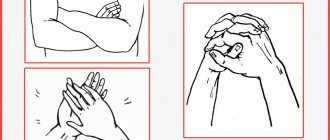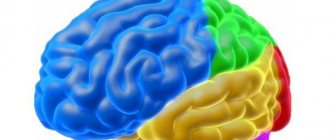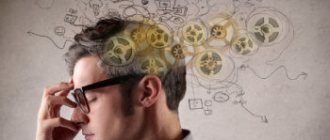There are simply no limits to human capabilities. But how we use them and whether we use them at all depends on the functioning of our brain. Most of us, as scientists have proven, use only 2-3% of our brains. In addition, as recent medical research shows, based on numerous ten-year experiments and in which more than 7,000 volunteers took part, our brain begins to age after 45 years. So, you need to try to make the most of it until then.
Moreover, during the experiments, an interesting trend emerged: men lose their intellectual potential faster than women. According to scientists, it is necessary to constantly and maximally use your mental potential. An inquisitive person who has a lot of hobbies has a significant increase in the capabilities of the brain, and in addition, completely unknown previously abilities are revealed.
In addition, our brain has many enemies. For example, regular consumption of alcohol provokes the death of pituitary cells, which is simply fatal for brain function. Constant stress and lack of sleep also lead to exhaustion of our brain. Previously, it was believed that our brain works as a single whole and loses its abilities as a result of disturbances in its structure. But recent medical research has shown that some parts of the brain take over all the functions of the damaged areas. Scientists and doctors were especially surprised by the fact that each hemisphere is a kind of “separate personality” with its own memories, emotions and knowledge. Therefore, sometimes people experience cases of “split” consciousness, and sometimes there is a feeling that two completely different people live inside us.
Brain topography
Each part of the brain has its own functions. For example, information obtained through vision
is analyzed in the occipital region of the brain.
And the movement
is controlled by a fairly narrow strip of nervous tissue that stretches from the top of the head to the ear, like the earpiece of headphones.
Brain training
Is your memory failing? It’s not surprising, because she suffers without load in the same way as her muscles. Memory development exercises will help you - you can start doing them at any age.
At the same time, vision, hearing, movement, and all tactile sensations are controlled in a mirror way.
So, if a person has a stroke in the left hemisphere, the motor functions of the right side of the body are impaired. Next to the motor area is the area where tactile sensations
.
Therefore, often when the brain is damaged, a person simultaneously loses both the ability to move and the ability to feel. The perception of auditory information
occurs in the temporal region of the brain.
In right-handed people, the left temporal lobe is responsible for understanding words and expressing one's own thoughts. Right temporal lobe – helps to hear music and identify various noises. The area of the brain where the visual and auditory areas meet is responsible for the function of reading
- converting visual images into sounds.
How to develop your brain? TOP 10 effective exercises
The presented exercises and methods are effective at any age, regardless of gender, occupation and basic level of intellectual development. The key condition is regular training. If you study today, and tomorrow you take a six-month break, there will be no results. Let's talk about how to develop the potential of your brain, and note the most effective methods and exercises that should become a habit.
Online brain trainers
One of the most convenient and effective is Vikium.
Here are collected tasks that will keep your brain activity in good shape, training your memory, attentiveness and thinking.
Logic puzzles
Solve logic problems. Alone, in the company of friends and acquaintances. Riddle them to your other half or parents, offer them for discussion at friendly gatherings. They will make your brain work at full capacity.
Example of a logic problem : Ivan built a house with all the walls facing south. The day after the construction was completed, he saw a bear sleeping on the veranda to the left of the door. What color is the bear?
Answer: White. All the walls of the house can face south only at the South Pole, and all the bears living there are white.
Memory training
Use exercises to train your memory. We recommend that you download or purchase the book “Memory Does Not Change” by the popular psychologist Angels Navarro. It presents about a hundred illustrated exercises of several degrees of difficulty.
Level 1 exercise example
Read your to-do list for today for a minute, then repeat each item out loud or write it down on paper without looking at the original version.
To-do list:
- Visit the vet with Rex.
- Collect test results from the clinic
- Order duck stuffed with lemons
- Pick up Anya from school
- Make a duplicate key
- Pack your suitcase for tomorrow's trip
- Buy bread home.
As you successfully complete the tasks of the 1st level, you will be able to move on to the 2nd and subsequent ones.
Take your time and don't overload yourself. Try to do no more than five exercises per day.
However, it is important that they be different each time and repeated no earlier than a week after their first passage.
Answer tricky questions
Here it is worth turning to John Farndon’s book “The Backfill Question.” In it, the author collected 187 complex questions that require a detailed answer. John recommends reading the question and thinking about it yourself and trying to answer. And only after that you can read the answer - the author's opinion. Needless to say, even an advanced scientist will not be able to put forward unambiguous theses.
Example question : Can the bag ever be empty?
Suggested answer : No, even if you open it, turn it upside down and empty the entire contents onto the table. It will still contain air molecules, dust particles and bacteria. Aristotle also said: “Nature abhors a vacuum,” arguing that matter will always strive to fill it. Accordingly, it is impossible to create an absolute vacuum in a bag without the use of special, perhaps not yet invented, equipment.
Develop strategies
Strategic thinking is accessible only to a person with developed intelligence. Agree, you will never associate a strategist with someone narrow-minded and mediocre. To help develop strategic thinking, game theory is a mathematical method that teaches you to calculate moves in advance and use game patterns in everyday life.
Example of a game theory problem
Given:
A hidden number in the range 1-100 that must be guessed. You have 5 attempts. After each, you will receive information: whether the hidden number is greater or less than the one you named.
Estimated course of the game:
- Answer 50. Incorrect, the number is less.
- Answer 25. Incorrect, the number is greater.
- Answer 36. Incorrect, the number is greater.
- Answer 44. Incorrect, the number is greater.
So before the fifth move you are left with several options: 45, 46, 48, 48 and 49. Despite the fact that the intended participant in the game tried to choose average numbers and narrow the circle of correct decisions to the maximum, he made a mistake. He did not take into account the situation in which the person who guessed the number found himself. The goal of the latter was to make the task as difficult as possible.
Accordingly, you would need to put yourself in his place. What number would you choose in its place? Of course, 49. But this is the wrong answer. After all, we also wanted to confuse you. The hidden number is 48. And the main lesson to be learned from this riddle is that you should always take into account the goals and objectives facing your opponent.
Spend time on math
Here we are talking not so much about logical problems with numbers, but about classical mathematical examples. Open the same algebra textbook and solve examples that you can handle. For some, these are integral equations, and for others, counting by column. Gradually complicate the task, remember the rules. This will be useful even for humanities scholars and people whose lives have nothing to do with numbers and mathematics in general.
Don't miss: How to become smarter: 22 working ways
Take music lessons
Have you always dreamed of learning to play the guitar, piano or, who knows, clarinet? It's time. Even if you are 65, even if you have 8 grandchildren and no time at all, not to mention hearing and musical taste. The famous psychologist Victoria Williamson and a number of other authoritative researchers are convinced that playing musical instruments helps develop the brain, as it forces several parts of it to work in parallel. Therefore, choose an instrument to your taste and learn to play at home or at specialized courses.
Meditate Mindfully
Meditation is one of three ways to develop the brain, the effectiveness of which has been proven by scientists. We recommend combining business with pleasure and trying to meditate mindfully. Start with a simple breathing practice:
- Sit up straight, preferably on a chair with a straight back, place your feet on the floor, and relax your arms.
- Close your eyes and focus on your breathing. Watch how the air fills and leaves the lungs, how the chest moves.
- Gently push away any thoughts, just watch your breathing, and don’t try to change it (inhale deeper or more often, for example) - just watch.
- At this moment, your head may begin to fill with fears, anxieties and other thoughts - do not react to them, constantly return to observing your breathing.
- Open your eyes and spend about 1 minute in the same position.
The good thing about mindful meditation is that it helps us not only develop our brains and relieve stress, but also learn to look at the world differently. We often stop paying attention to details, do everything automatically and lose our zest for life. Mindful meditations help you take a different look even at things that seem familiar, ordinary and banal; they teach you to appreciate moments, while simultaneously developing your brain.
Strive to think outside the box
Even if your profession has nothing to do with non-standard thinking and creativity. This is one of the most effective ways to develop the brain, equally relevant for both the composer and the mechanic. To develop non-standard thinking, you can use the Leonardo da Vinci method. If you remember, he drew ideas for his paintings from scribbles: he closed his eyes and chaotically ran a pencil over a piece of paper, then opened his eyes and tried to see something in what he had drawn.
Don't miss: How to increase your intelligence level (IQ): TOP 10 ways
How to put Leonardo da Vinci's method into practice:
- Take a piece of paper and write down the task you are facing on it.
- After this, completely relax and allow your brain to create all kinds of images that will describe the situation associated with the designated task.
- Draw what your intuition wants - give the task a visual form. Don't think about how the drawing will look in advance. Drawing should be unconscious.
- Has your intuition run out? Take another sheet of paper and draw some more.
- Lay out everything drawn in front of you and look carefully. Think about the pictures for a few minutes.
As you look at each visualized image, try to ask yourself questions: “What is this?”, “Where did this come from?”, “Why did I decide to draw this?” Trying to answer will certainly push you to generate new ideas. It is possible that new thoughts will come to mind on their own the moment you look at the drawings for the first time.
Learn foreign languages
Don't know how to develop your brain's potential and make it work at 100%? Learn foreign languages. And not one, but two or three. The main thing is that this does not come at the expense of knowledge of the main language, for example, English. If you don’t know it well enough or need improvement, put off learning new languages or choose the ones that are as similar as possible. So, if you have insufficient knowledge of English, you should simultaneously learn French or German, Czech - Slovenian or Polish, Russian - Ukrainian or Belarusian.
Don't miss: Which foreign language to study: TOP 5 most promising
Write poems and stories
Definitely with a plot. It is recommended to periodically compose short stories and write at least short poems, alternating works of these two types. Finding rhymes and storylines will keep your brain firing on all cylinders. Create situations, invent characters, put them in all sorts of positions. Sometimes choose strange, fantastic plots, for example:
- The cat decided to conquer the world.
- You became a bee and ended up at the North Pole.
- Aristotle challenged the Glory of the CPSU to a rap battle.
- Your friend has been captured by the tea set.
- The postman Pechkin brought you a parcel.
Try not to repeat yourself in plots, come up with something new every time. To avoid writing on your desk, start a blog or community on a social network. Invite friends or strangers there. But remember: your task is not to become a famous writer, so be extremely cold towards criticism of your literary talent.
Frontal lobes – “management company”
The largest part of the brain is the frontal lobe. One of the main functions of this part of the brain is planning
- the ability to perform actions that require several different actions.
In order for the sequence of actions to be correct, the frontal lobes perform another function - organizational
.
Additionally, the frontal lobes play an important role in the control of emotions
.
In the deep parts of the brain there are areas responsible for primitive emotions: hunger, aggression and sexual desire. These structures send messages to the parts of the brain responsible for action. The frontal lobes control this process through the so-called stop function
. So, for example, if emotions dictate to hit the boss, the frontal lobes signal: “Stop, or you will lose your job.” This function is for notification purposes only. The frontal lobes, of course, cannot turn off emotions and stop actions.
Human curiosity and the model of the world
The most human level, which we cannot really observe in experimental animals, is the level of speech activity. Approaching, manipulating - this is all important, cats, raccoons, and monkeys do this. But there is a unique function in our brain associated with verbal activity when we call everything with words. And there is a zone that is located in the posterior part of the parietal lobe, the temporal lobe, where, over the course of our lives, what is called the information-speech model of the world is gradually formed. That is, a cast of the surrounding reality appears, our ideas about other people, our ideas about ourselves.
Using this model, we plan our behavior, predict the reactions of other people, and filling this model with information is another gigantic source of positive emotions
. After two years, a child is actively gaining speech; he can take you by the hand, lead you to something in your apartment and say: what is this called? Because there is disorder, there is a thing, but there is no word. A model of the world gradually forms and becomes more complex in the child’s brain. With its help we think, predict, create, dream.
Yes, it's just a model. Just like a globe is a model of the Earth. But this is a cast, a copy of the world, on which we rely as we go through life. As Stephen Hawking said, we exist within the framework of model-dependent realism, and filling this cast with information gives enormous positive emotions.
Growing up, we begin to think, dream, predict, and sometimes create with this thing. Verbal creativity, from writing poetry and great novels to just a short anecdote or joke - all this is also a source of dopamine positive emotions. How, for example, does humor work? They start telling you a story, your model comes up with a banal outcome, and then - that’s the end of the joke. And - oh, the element of surprise, dopamine, positive emotions.
Thanks to this information model of the world, where there are a bunch of words connected to each other, generalizing each other, collected into a single system, we can receive positive emotions literally from scratch. You can sit in a quiet, dark room, but if you dream or remember good events, this is already a source of positivity. And if you begin to create, that is, create new combinations within your model of the world, then you can generally rise to the heights of creative ecstasy.
The dopamine molecule not only creates positive emotions: on the basis of dopamine we learn - that is, we not only perceive certain data, but also remember it, and, in particular, include it in the information model. It is very important.
Soldiers of the invisible front
At the back of the brain is the cerebellum
.
Its volume is approximately one-eighth the size of the cerebral hemispheres. Despite its small size, this part of the brain controls coordination of movements
(the joint work of all muscles) and
the sense of balance
.
Thanks to the work of the cerebellum, a person can stand on his feet, maintain balance and move around. The brain stem
is located under the cerebral hemispheres and behind the cerebellum.
It connects the spinal cord and brain and controls all the functions that are necessary to maintain life in the body. The trunk is responsible for the involuntary work of muscles during breathing, heartbeat, food digestion and blood circulation. It works automatically and without interruption
.
How to prolong youth?
One of the mechanisms leading to aging is the death of nerve cells. The less a person strains his brain, the larger this process becomes. Find out how to stop this process and delay old age.
The brain stem is also responsible for sorting and distributing messages that the brain receives from the rest of the body.
Another notable area of the brain is the hippocampus
.
This paired formation, located in the temporal lobes of the hemispheres, controls memory
.
More precisely, by transferring information from short-term memory storage to long-term memory. The pituitary gland
is located on the lower surface of the brain - in a special bony cavity called the sella turcica.
The size of the pituitary gland is very small - no more than a pea. Its task is to control the production and release of all hormones
in the body.
Produces the pituitary gland and its own hormones - for example, growth hormone. The hypothalamus
is located practically in the geometric center of the brain.
It synchronizes the work of the nervous and endocrine systems of the body, working closely with the pituitary gland. For example, it is responsible for a kind of internal thermometer that maintains the temperature of the entire body
. If it increases, the hypothalamus sends a complex neurohormonal message that stimulates sweating. If it decreases, it gives a command for muscle tremors.
On the evolutionary role of curiosity
Our brains are curious. We are innately curious. Curiosity, the desire to learn new things, the desire for creativity - all this is inherent in us by evolution. This means that it has always brought and continues to benefit us. To know more about the world around us means to be more adapted to it. From a child's search for a food source to investment strategies, all of this is very important and meaningful to us.
Moreover, if we satisfy the need for new information, our brain honestly pays for it with positive emotions. From the point of view of the systemic functioning of the brain, this is the basis on which learning processes are based.
Motivation
It has long been noted that the brain is reluctant to listen to the voice of reason. To become better or learn something new, we definitely need an emotional impulse. Only through emotions and feelings of dissatisfaction can we force ourselves to work effectively. The desire to change is what can and should move you forward .
On the Internet you can find many motivating books and articles that will help you set yourself up to achieve certain goals. Affirmations are also a good way to motivate.
The interestingness of the training process itself also plays an important role. People quickly get bored with doing the same exercises day after day. There is only one way to overcome this: by turning training into a game. When developing Bitreyniki, we pay a lot of attention to the gaming aspect. Magic, tournaments, titles, ratings and the like are designed to increase interest in training and encourage you to do more. Use them.
Where does boredom come from?
Boredom is one of the variants of negative emotions. Each of us understands perfectly which emotion is positive and which is negative. Positive means we did something good for ourselves and the body, negative means something went wrong. And boredom is obviously a negative emotion, we need it in order to get rid of it.
We can say it differently: the role of negative emotions is to help select behavioral programs. You chose some behavioral program, it led to boredom, which means that next time it’s better not to choose this program.
Well, then, if you look more subtly, then boredom is, of course, either some kind of monotony, lack of novelty, or when the environment forces a person to do something that is not interesting to him. And here we are not even talking about curiosity, but about freedom. The freedom programs in our brains are as basic as the programs for food and reproduction. Ivan Petrovich Pavlov wrote about this in 1917, between the February and October revolutions, in the essay “Reflex of Freedom”: even his dogs were not only about food, reproduction and safety.
So boredom is sometimes also associated with the fact that [there is] lack of freedom. There are scientific works showing that in a state of boredom, many parts of the brain are inhibited and apathetic, but, as a rule, there is a focus of activation somewhere that says: something wrong is happening, it needs to be changed, when will it end? That is, unlike, for example, depression, when everything is like in a swamp, boredom retains a certain energy potential to pull us out of this state, to direct us somewhere. Its biological purpose is to show us that we don’t need to go here, but somewhere else.
How memory works
Not long ago, it was believed that the brain did not have individual cells to store specific memories. But in 2005, scientists were able to establish that specific neurons are responsible for recognizing relevant objects. So, one specific neuron responded to a photo of Jennifer Aniston, but a completely different one responded to a photo of Halle Berry.
Since then, scientists have developed methods that can implant false memories into the brains of mice, as in the Christopher Nolan film Inception.
When we need to remember something, the brain searches for the desired cell not randomly, but in a specific area. This method is called “restricted area search.” For example, if we are asked to list as many animals as possible, then most likely we will start with domestic ones and only after exhausting this category will we move on to wild ones.
The study found that people with high IQs can remember more animals than those with lower IQs - but only because they are able to find more categories for mental search.
You can try a similar experiment for yourself. Set a timer for two minutes and write down as many names of creatures that live in water as possible. Ready? Now do the same, but rely on the categories: freshwater fish, marine fish, marine mammals, predatory fish, sea creatures with a shell. Most likely, in the second case you will be able to name many more animals. For the brain, searching in a limited area is much more effective than in vague categories.
Use this method when you need to remember any long list.
Physical activity
Physical activity is the key to good health. It also helps increase intellectual abilities and expands the brain's potential, allowing a person to become much more intelligent. To do this, it is enough to regularly load yourself physically.
What physical activity is effective:
- Walking. Regular walks are very beneficial for your health and brain. It is best to walk outdoors in the evening or during the day when the sun is shining brightly. It is recommended to walk for at least half an hour.
- Yoga. The physical practice called yoga is also a type of activity. It develops cognitive skills and opens up new boundaries for a person, making it possible to further expand their potential.
- Aerobic exercise. Performing aerobic exercise has a direct effect on the hippocampus, which helps develop intellectual abilities, opening up new possibilities.
- Power training. It is recommended to exercise in the gym with the generally accepted regularity, because... this stimulates the protection of brain neurons, which has a positive effect on intelligence.
- Golf. Anyone who wants to maintain their physical condition or develop their intellect should play golf. Before hitting the ball, you need to calculate its strength, angle of inclination, and also calculate the trajectory of its flight. It is these factors that become the main argument in unlocking potential.
There is no need to limit yourself to this list. You can choose other sports or active dances based on personal preferences.
The brain works much better if pleasant music is played during training.
Why is it important to look for your interest?
When chess players, musicians or mathematicians are recorded in a tomograph, they see an increase in the corresponding areas of the brain. At the same time, however, every time a discussion arises: did they become chess players because their zone was large, or did they have a large zone because they became chess players? Apparently, both factors are at work. That is, our brain is still differently predisposed to different types of tasks
. And it is very important, first of all, again, due to novelty and learning new things as we go through life, to find the zone that works well for us, and positive emotions will tell us about this. That’s why it’s so important to take a small child and take him to a music school, an art school, a robot assembly group, or a figure skating class, so that at some point the child will tell you: oh, I like this. Then his curiosity, an innate preset, will work: it is very important to dig in the place where the diamonds lie, and not just anywhere.
It’s not easy, we’ve been doing this all our lives, and sometimes we choose a profession because our parents insisted, the salary was higher, or the institute was on our street - it’s not far away. And then, by the age of 30–40, people wonder: where is the joy? Where is she? That same boredom arises because you are not doing what your brain is predisposed to, it gives you little novelty, and what happens to you is not significant to you. Then people begin to change their profession or at least choose a hobby, so that straight away - wow! And sometimes, having chosen a hobby, they make it their profession. I went, again, to the Maldives and stayed there as a diving instructor. Before that he was a financier or a programmer, but now he lives in the tropics, wears shorts and is happy.
Psychologists and sociologists say that approximately every 20 years our brain transforms so dramatically
, so changing your profession two, three, or even four times during the course of your life is normal. Now the world is so fast and we have such a long life, because, in fact, people en masse began to live 60–80 years not so long ago. Therefore, we update.
For example, I started my career as a scientist, then I began to do a lot of teaching, and now the popular science field has become active. And I feel: I like it. And you know, there are a lot of teachers in my family, although mostly rural teachers, because our family is from the Ural outback. But there’s something sitting there that I like to tell, and on a variety of levels: now we’re done with you, and I’ll give a lecture about the brain to schoolchildren.
Nutrition
It’s not just those who play sports or are trying to lose weight who need to watch their diet. Every person needs to control their diet. The correct selection of food products improves metabolism, normalizes weight, strengthens the immune system, increases physical abilities, and also has a positive effect on a person’s intellectual skills.
The first important condition for proper nutrition is to consume enough fluid. If a person lacks it, then brain function will be significantly deteriorated. To avoid this, you should drink about 2 liters of water every day. This will increase intelligence and speed of its work.
The second condition is the nutrition itself. What to include in your diet:
- Greens – folic acid and vitamins contained in greens are very useful for intellectual activity;
- Apples – quercetin, which is part of apples, protects brain cells from any negative effects, and also prevents the decline in cognitive skills;
- Milk – many components make milk very useful for improving memory and mental skills;
- Fish – the presence of this component in the diet increases intellectual activity and also strengthens memory;
- Nuts - protein increases the protection of brain tissue from external influences, which improves cognitive function;
- Chocolate - glucose increases brain activity, dramatically improving all cognitive abilities of a person.
You can also unlock the full inactive potential of the brain with the help of eggs, liver, citrus fruits, legumes, honey or coffee. At the same time, it is not recommended to eat junk food (fast food, fatty, fried) and drink alcohol.
Some people prefer to increase their brain potential through medical means. One of the most popular was “Theanine” from.
Rest
Many people believe that you need to work as hard as possible. But this opinion is wrong. The quality of rest is no less important for unlocking your potential. You need to not only allow yourself to relax, but also choose the right hobbies. This is the only way to achieve results.
How to Easily Increase Brain Potential Through Rest:
- Good dream. You need to sleep about 8 hours a day, and this should be done at night. This will remove all harmful substances from the body, as well as stimulate the brain to increased activity.
- Sunlight. Exposure to sunlight fills the body with vitamin D, increases activity and productivity, and improves mood. It is recommended to spend more time indoors exposed to sunlight.
- Trips. Travel to other cities or countries should be made every year. They stimulate the brain with new places and beautiful landscapes. A change of environment is always beneficial for a person.
- Writing stories. You need to come up with several main events that happened in future history. Based on them, it will be easy to write your first short story. You can simply write a short story without any prior thought to the plot. This will have a positive effect on intelligence, imagination, and memory.
- Refusal of intellectual “garbage”. You should completely stop visiting useless resources on the Internet and randomly reading articles that have no meaning. You just need to leave a few main sites where you can occasionally go and read new information.
- Games. Video games that focus on thinking a lot or special mental mini-games are very effective in expanding the brain's potential. You can use them both on a computer and on a smartphone. You can also use classic crosswords, puzzles and other puzzles.
- Meditation. Regular meditation helps the brain relax and prepare for future work and new information. This practice needs to be done every day to achieve maximum results.
When raising potential using such methods, a person will also receive other beneficial effects on his brain and body. Therefore, it is recommended to use several of them at once to achieve the best results.
Dolphins and humans have similar levels of intelligence and brain power, and their comparison has become a subject of interest to many scientists.
What can be done?
It is important to consciously control this process, because doing the same thing every day, moving along the same paths is a bad story. You don’t get positive emotions, and you don’t even notice it yourself. It’s worth telling yourself: well, I haven’t done anything new for a long time, my hobby hasn’t changed for a long time, I haven’t learned anything for a long time.
And one more thing - don’t forget that in addition to curiosity [the brain] has other innate programs-needs. There are about two dozen main ones alone, and they all compete with each other. There are banal programs for laziness, saving energy, which say: why am I going to go somewhere, manipulate something and remember something? I already know so much about the world, I’ll have enough for the rest of my life. And that's it - the slide into depression, lethargy, apathy, weight gain begins, and so on, and so on.
I was recently impressed by [scientific] work: they looked at how paradoxical sleep is expressed in people of different ages. Paradoxical sleep is when our brain processes accumulated information, this is directly visible on the electroencephalogram. In an adult, it takes up to approximately 15% of the time. In children, the percentage is higher, and the smaller the child, the greater the severity of paradoxical sleep - there is a lot of novelty. Lord, the child saw a dog, a hare, an elephant for the first time. This is an amazing event! But what is important: if your day, the day of an adult, has been active, if you have learned a lot of new things, then it is on this night that you paradoxically sleep longer, because the brain says: wow, how much information we have collected!
Therefore, it is important that the information is emotional and meaningful. For example, not just the novelty, but also the person who shared the information is very pleasant to you. Not just a new city, but also connected with some of your knowledge of the history of France, Germany or Petropavlovsk-Kamchatsky. Such emotional cocktails are very important, and you need to consciously exploit them. This is the best defense against Alzheimer's disease.
In this sense, children are an amazing guide for us, not very young adults. When you walk with your child or grandchild, you walk through it. And here it is - oh, the bug is crawling! My God, what an interesting tree, you can climb it! Oh, what a funny dog! This is amazing! And the greatness, for example, of real artists is that they see their whole lives this way and can invent a whole world from the smallest curl of clouds.
Each of us is capable of this, but it must be trained and consciously pushed
, feed and tell the programs of laziness: no, we are already going for a walk around the city. Well, just think, the weather is bad, but we’ll still go for a walk.
About the modern world overflowing with information
We live to consume information. If something significant happens during the day, it goes to our hippocampus. This is a memory of the current day, a memory for several hours. Much of what we have lived doesn’t even make it there: if you were asked what you were doing at the same time yesterday, you may not even remember. But if at that moment some strong emotion happened, then it clings to the hippocampus.
And then the most significant things gradually begin to be rewritten into long-term storage. And this process is terribly important. We must clearly understand that learning new things is just the beginning. If the information received is significant to you, then it, especially when repeated, is registered in long-term memory.
The insidiousness of this system is that we get a positive emotion simply when we learn something new, even before we have adapted this knowledge to our general system [model of the world]. And we can forget everything, nothing will remain in our heads, but at the same time we have gained a little dopamine. In this case, we learn new things not in order to study, that is, not in order to fulfill the main task that this system sets for itself, but simply in order to enjoy ourselves a little.
We have become smarter
In 1984, scientist James Flynn found that the average IQ was rising gradually—by about three points every decade. He studied IQ test scores from the early 20th century and found that the 1920s average would be considered mental retardation today, while today's run-of-the-mill scores in the early 20th century would be close to genius levels.
Flynn is confident that people have really become wiser thanks to the fact that they began to eat well from childhood and suffer less from disease. In addition, the level of school education has increased, and access to information has become easier.
The Flynn effect demonstrates that humanity as a whole is getting smarter, and the power of intelligence depends not only on DNA.
Difficulty of exercises
The difficulty of the tasks should be optimal. If it is too low, then you will easily cope, and your brain will not need to rebuild. If, on the contrary, the exercise turns out to be too difficult, you will also achieve nothing except irritation due to your own powerlessness.
Intellectual capabilities depend on the time of day, degree of fatigue, health status and many other factors. This means that complexity should be adjusted very flexibly.
The result will be maximum only when you exercise to the limit of your capabilities. It is almost impossible to achieve this with the help of traditional games, crosswords and puzzles, but computer cognitive brain simulators can successfully cope with this. They continuously assess the state of your cognitive functions, making tasks more difficult or easier as needed.









